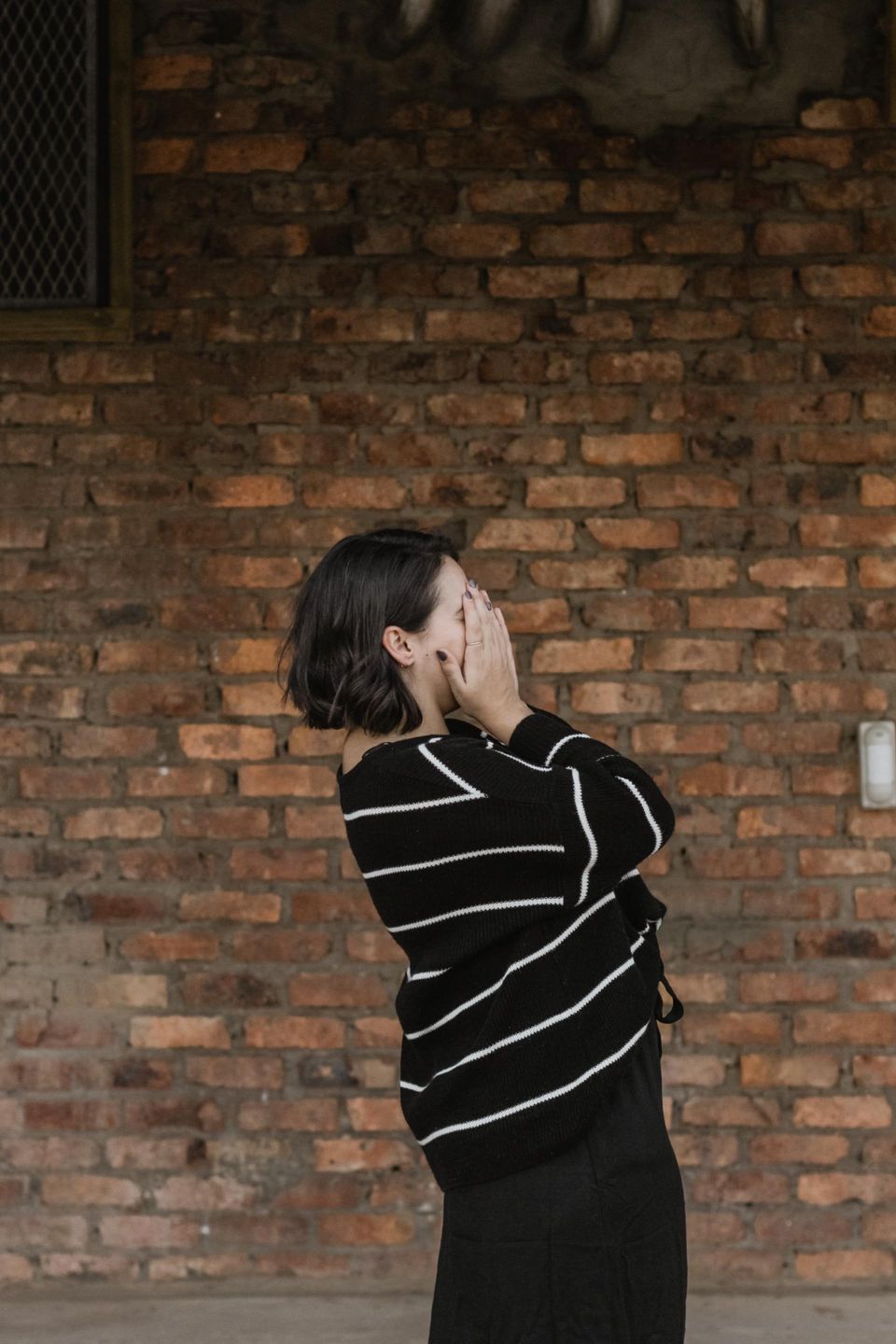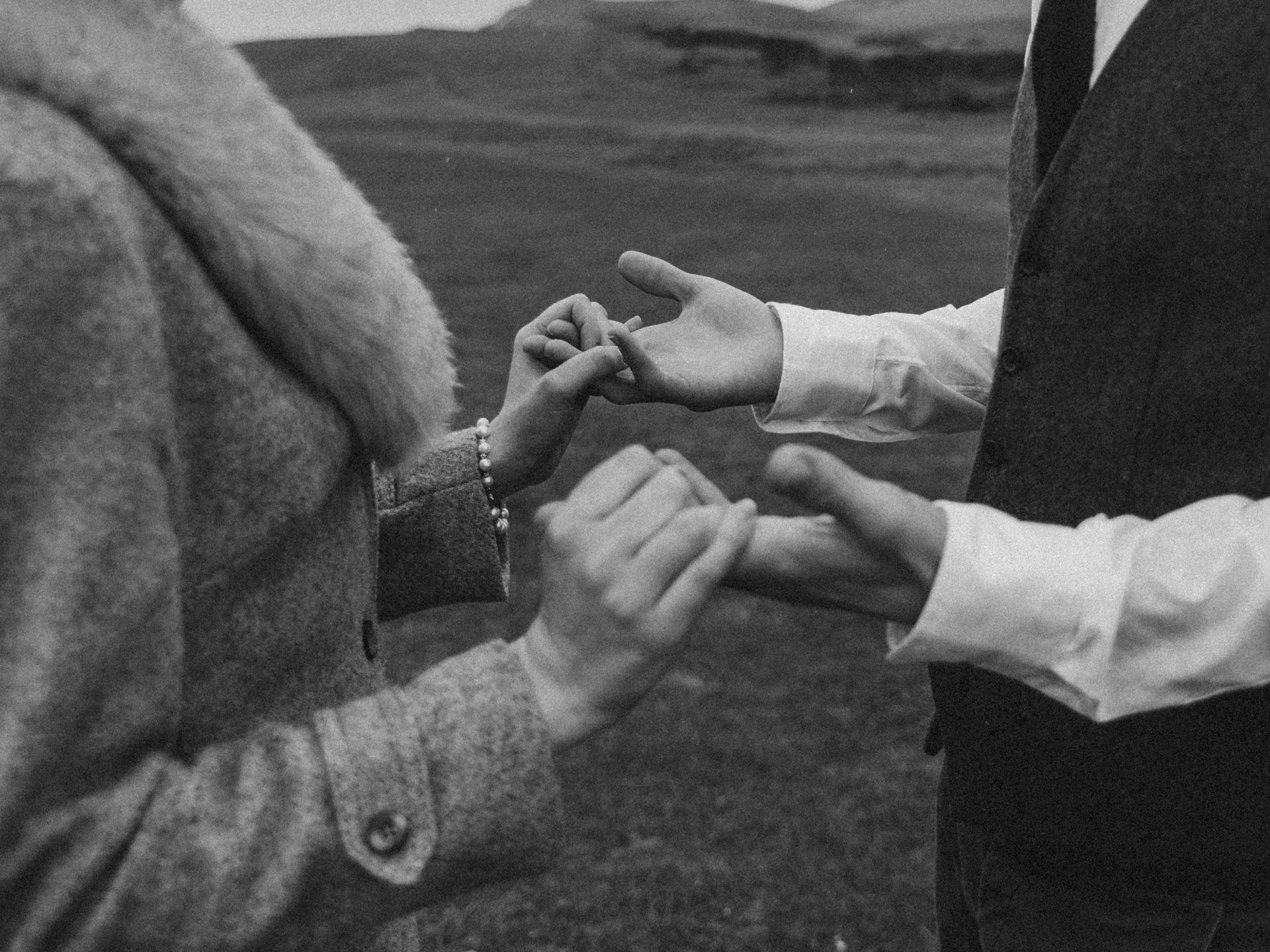When things dont' work out
Robyn Black • July 25, 2020
Genesis 29:15-28

I was saying to someone this week, when people talk about a “Biblical idea of marriage”, they should be a bit more specific. Jesus speaks a little about marriage and divorce. Paul, who never married, speaks a bit more about marriage and roles. But the only real images of marriage and family we have are from the Old Testament….and it can get weird!
Today’s reading is about Jacob and I’ll give you a bit of background to this reading.
Two generations back from Jacob was Abraham. Abraham and Sarah had a child, Isaac. Isaac grew up and married Rebekah, and Rebekah had a brother called Laban. Then Isaac and Rebekah (who had a brother Laban) had two sons, twin boys Esau and Jacob.
Helped along by his mother Rebekah, Jacob cheated his slightly older twin brother out of the family inheritance and the blessing of their father, which was rightly Esau’s.
Esau was furious and decided to kill Jacob. So, his mum Rebekah said, ‘quick, go and stay with my brother Laban who lives a long way away, you’ll be safe there’.
And before he goes, his dad Isaac gives parting advice…. “marry one of your uncle Laban’s daughters. May God Almighty bless you and give you many children. And may your descendants multiply and become many nations! May God pass on to you and your descendants the blessings he promised to Abraham. May you own this land where you are now living as a foreigner, for God gave this land to Abraham.”.” (Gen 28:2-4)
So, Jacob heads off to Uncle Laban’s house, with his Dad’s words of wisdom and blessing ringing in his ears ‘marry one of Uncle Laban’s girls, and may God make you fruitful’.
Jacob didn’t know exactly where Laban lived. So when he came to a well not far from where he thought his Uncle might live, he asked the shepherds there if they knew his Uncle Laban. Yes they replied, not only that but “here comes his daughter Rachel with the sheep” (Gen 29:6b).
The Bible says that “Jacob kissed Rachel and began to weep aloud.” (Gen 29:11). I’m intrigued at the detail here, but I think there’s something about his relief at finding a safe place. Remember his brother wants to kill him, he’s on the run, and he’s found his relatives and a place of refuge. It seems to me that he greets Rachel and then cries tears of relief.
“As soon as Laban heard that his nephew Jacob had arrived, he ran out to meet him. He embraced and kissed him and brought him home. When Jacob had told him his story, Laban exclaimed, “You really are my own flesh and blood!”." (Gen 29:13-14).
It does seem as though they’ve never met before. Of course when Jacob’s mum Rebekah married Isaac, she probably moved away from her family and brother Laban, never to see them again. Even nowadays in many parts of the world, upon marriage women have to move in with their husband and his parents and his siblings. And she has no choice but to severe all ties with her own family, who often live in another village.
So this seems to be the first meeting of Jacob and Uncle Laban - a happy meeting of distant relatives, for now. Jacob started to work for his Uncle, and after a month Laban said, ‘no, no this can’t go on, I know you’re a relative but it’s not fair that you’re not being paid. Tell me what you want your wages to be.’
So Jacob said, ‘well, I’m in love with your daughter Rachel, so I’ll tell you what, I’ll work for you for 7 years, with no other pay except to be able to marry Rachel.’ Rachel was payment for work. She was given in marriage to Jacob, in an arrangement about which she had no choice.
The agreement is made between Laban and Jacob and 7 years pass. Laban organises a great wedding feast for Jacob and Rachel, but on the wedding night, Laban switches daughters at the last minute, and Jacob unwittingly marries Leah, the older sister. You might be thinking how can this be, but Leah was either heavily veiled, or brides may not have even been part of the ceremony. The marriage was after all, an agreement between 2 men in this culture – the father giving his daughter to another man, to cook, clean and produce male heirs.
Laban’s justification was based on family shame. An older sister must be married before her siblings. Again, there are still parts of the world where the older sister must marry before her younger sisters, and she therefore is given to whoever will take her. It sounds like a world or pain.
And there’s a world of pain in this story. There are no winners here. Jacob’s understandably upset – he’s married the wrong sister. Leah has been given to someone who doesn’t like or love her, so she doesn’t bring shame on the family. And Rachel has just witnessed the man she presumably loves, marry and go to bed with her sister. And you thought your family was messed up!
Dodgy Uncle Laban says, ‘OK, I understand you’re upset, but I’ve got good news! You can marry my other daughter Rachel next week, if you work for me for another 7 years”. Two wives in two weeks – not only that but they are sisters and they go on to fight about who’s going to sleep with Jacob!
Who would have ever thought that the soap opera stories of a dysfunctional family, brokenness, lies and deception, unmet expectations and hopes would become sacred stories? This is true not just for Jacob and Esau, Laban, Leah, and Rachel but for all of us.
We each have stories of family dysfunction, sorrow, loss, despair, and brokenness; stories of how things did not work out for us, sometimes through our own fault and other times simply by chance or the circumstances of life. Often the abuse and manipulation of others, the Uncle Laban’s of life, have us twisted up for weeks, months or years.
Those stories are probably not the first place we turn to when we are looking for God. And yet, God is always somehow mixed into our stories of dysfunction, brokenness, sorrow, and despair, continuing to bring goodness, and hope and restoration and healing and life.
Between Leah, Rachel and a few maid servants, Jacob fathered 12 sons, who became the 12 tribes of Israel. And these tribes became the beginning of the fulfilment of God’s promise to Abraham to make his descendants as numerous as the stars in the sky and as the sand on the seashore (Genesis 22:17).
We don’t lead perfect lives, and life doesn’t usually follow a perfect plan! I love these words of Jesus “I have told you all this so that you may have peace in me. Here on earth you will have many trials and sorrows. But take heart, because I have overcome the world.” (John 16:33).
Take heart today and stay close to Jesus. In His presence is peace and walking with Him brings hope and healing and new life. And this is truth for our neighbours and family and community, who also don’t have perfect lives, and need to know the hope of Jesus. God bless you this week.
Sermons For The Moment

This is an interesting Psalm – another psalm of ascent. We spoke about these Psalms of Ascent a few weeks ago. They were songs the Jewish people sang as they made their way to Jerusalem to go to the temple, through the forest, along the tracks, camping by the roads. And I believe songs like this kept them focussed and kept their spirits up. I can imagine days of walking together, tiring, boring, hot and dusty. And singing some of these Psalms keep them focussed on the faithfulness of God. Much better then eye spy for the kids. Journeys are not all their cracked up to be even if the destination is worth it. As you know, when I was growing up we always holidayed at Bawley Point past Ulladulla, and in those days it was about a 4 hour drive from Sydney. We always left later than we meant to…and the last 20 mins was on a dirt road. One year when I was probably about 4 years old it was dark by the time we got to the dirt road, and half way along the dirt road, was a dodgy wooden bridge over a river. I think part of the bridge had been damaged and we had to wait a bit in the pitch black darkness before we could proceed. Dad was out with a torch ensuring the bridge was safe to drive on and mum and us 4 kids were sitting in the darkness – no street lights, no moonlight. Of course, you might be able to guess what I said to mum in that car, with fearful crying…you’ve probably heard it from kids before. I said ‘I want to go home’. Mum said to me, ‘we can’t go home Robyn, we’re almost there’. In truth, after the bridge we had the last 10 minutes of a 4 hours journey left. We safely crossed the bridge and we were OK. But I remember it. I remember the feeling of being scarred in the darkness. I remember not liking this journey at all. Even though I always loved the destination. Well this psalm celebrates the end of the journey and the arrival at the destination. Psalm 126:1-3, “When the Lord brought back his exiles to Jerusalem, it was like a dream! We were filled with laughter, and we sang for joy. And the other nations said, “What amazing things the Lord has done for them.” Yes, the Lord has done amazing things for us! What joy!” Before we can understand the laughter and joy of the Israelites, we have to understand their journey. This Psalm looks back to when they arrived back in Jerusalem after 70 long years in Babylon. The captives had experienced great sorrow and mourning in exile. We read these heartbreaking words in Psalm 137: “Beside the rivers of Babylon, we sat and wept as we thought of Jerusalem. We put away our harps, hanging them on the branches of poplar trees. For our captors demanded a song from us. Our tormentors insisted on a joyful hymn: “Sing us one of those songs of Jerusalem!” But how can we sing the songs of the Lord while in a pagan land?” (Psalm 137:1-4). Their tormentors demanded they sing joyfully, but they were like – that’s impossible, it doesn’t come from our heart. So they just sat by the waters of Babylon and wept. But now by an amazing work of God they were suddenly back in Jerusalem. And so their joy came from their heart. The wait was over, the journey was complete. “We were filled with laughter, and we sang for joy.” The journey is the hard bit though isn’t it? I was reminded of this, this week. An Officer couple I was speaking to, said that their teenager said some very hurtful things to them. Stuff like, ‘you make my life worse’. As they spoke to me, I did very little but listen and pray with them. They do have other supports in their life as well, already seeing a psychologist. But what I was thinking in my head as they were speaking was ‘oh the teenage years, I’d forgotten them’. Though we have 2 wonderful young adults in P and K, they were times when it was more than tense. K wears her heart on her sleeve, and to this day apologises for some of the things she said to me. And P, you wouldn’t know what he was thinking, and then all of a sudden all his thoughts and feelings for the last 3 years would come out like molten lava everywhere. A few days later I checked in to see how the couple and their teenager were going. I mentioned in passing about teenage years and very briefly about our experiences. I didn’t want to make it all about me. But I said teenage years can be painful and those years can really hurt everyone in the family. Teenager included. They know that we have a good relationship with P and K and they said to me, you know, this is helpful. It gives us hope. I was like, yep, this too shall pass. Because when you’re in the midst of the journey of pain and sorrow, you sometimes wonder if there’s light at the end of the tunnel. If you’ll laugh again or experience joy again. You begin to wonder, “Is this all that God has for me? Will I ever be happy again?” And here’s the promise in Psalm 126:4-6, “Restore our fortunes, Lord, as streams renew the desert. Those who plant in tears will harvest with shouts of joy. They weep as they go to plant their seed, but they sing as they return with the harvest.” When you are going through a time of deep sorrow, Psalm 126 is strong medicine for your soul. It carries a powerful message of hope. It tells you that times of trouble and sorrow do not last. It tells you that God will turn your sorrow to joy and your tears to laughter. If you are going through a challenging time right now, I pray that this psalm will speak to your heart this morning. Let me tell you right up front, whatever you’re going through, it will get better. God will change your tears to joy. This week I found something I wrote about 10 years ago. I had written it on a piece of paper and there was a whole reflection about my life. At the time we had my mum living with us, she had dementia, and mostly I remember the good times and the fun times with her. I was also the Corps Officer at Glebe and Bob was the manager at William Booth House. After a page of writing I had written something like this “I’m often anxious, I’m usually stressed, I have eczema on my eyelids and ulcers in my mouth. I always feel pressed.” I went out to Bob in the lounge room and I’m like, ‘oh my goodness, eczema on my eyelids and ulcers in my mouth’, often anxious, usually stressed. The thing is, my life feels a long way from that now, and I’d forgotten what that part of my journey felt like. I’m sure when I was there I couldn’t look ahead and see a time of joy…but the truth is that “Those who plant in tears will harvest with shouts of joy. They weep as they go to plant their seed, but they sing as they return with the harvest.” This too shall pass. ‘Yes, the Lord has done amazing things for us!’ says verse 3. God is faithful – he does the healing, the restoring, he brings the streams in the desert that renews and brings fruitfulness. I don’t need to tell you – it takes time. Today, I’m praying for a work of healing in your life, a gradual restoration of joy, of laughter. Like me as a kid, sometimes we don’t like parts of this journey at all. Even though we know our destination is good. And ultimately, we have a destination like no other and that’s the promise of God. A home in heaven made possible through Jesus. May God bless you this week as you look to Him, listen to Him, find your hope in Him and find courage and healing in your journey.







